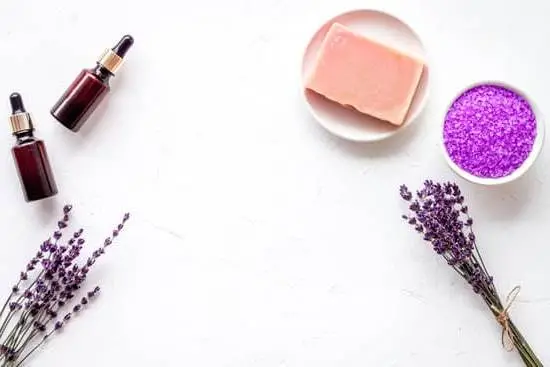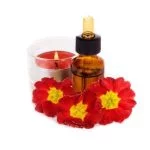Aromatherapy has become increasingly popular as a natural remedy for stress relief. As more individuals seek alternative methods for managing their stress levels, the power of scent and its impact on emotions and mood cannot be overlooked. In this blog post, we will delve into the world of aromatherapy and explore the benefits it offers in alleviating stress.
In today’s fast-paced world, stress has become an integral part of our daily lives. However, finding effective ways to combat and manage this stress is essential for our overall well-being. Aromatherapy, which utilizes essential oils derived from plants, provides a holistic approach to stress relief by targeting not only physical manifestations but also emotional and mental states.
Throughout this blog post, we will delve deeper into the science behind aromatherapy and its profound effects on stress reduction. We will examine how our sense of smell influences our brain and emotions, as well as uncover the physiological response to stress that aromatherapy aims to counteract.
Moreover, we will highlight specific aromatherapy oils that have been proven to effectively target stress-related symptoms. Whether you are looking for a calming agent or an energizing boost, there is an aromatherapy oil suited to your unique needs.
By exploring the incredible benefits of various aromatherapy oils, such as lavender oil, chamomile oil, bergamot oil, ylang ylang oil, frankincense oil, and peppermint oil in combating stress and anxiety levels, you can gain insight into which oils may work best for you. Join us as we embark on a journey through scent-filled relaxation rituals and discover how these powerful oils can enhance your well-being by providing much-needed relief from everyday stresses.
Understanding the Science behind Aromatherapy and Stress Reduction
Aromatherapy has been used for centuries as a natural remedy for various ailments, including stress. This section will delve into the science behind how aromatherapy works to reduce stress and promote relaxation.
One of the key aspects of aromatherapy is the impact that scents have on the brain and emotions. When we inhale essential oils, the molecules travel through the olfactory system and directly affect the limbic system, which is responsible for emotions, memories, and behaviors. This direct connection between scent and emotions explains why certain smells can evoke specific feelings or memories.
When it comes to stress reduction, aromatherapy has been shown to counteract the physiological response to stress. Stress triggers the release of cortisol, our body’s primary stress hormone, which can lead to increased heart rate, blood pressure, and anxiety. However, research has found that certain essential oils can help regulate cortisol levels and induce a state of relaxation.
There are several essential oils specifically known for their ability to target stress-related symptoms. For example, lavender oil is widely recognized for its calming properties and is often used to promote sleep and reduce anxiety. Bergamot oil has uplifting qualities that can improve mood and alleviate symptoms of depression or anxiety.
Ylang ylang oil is known for its sensual and harmonizing effects on both mind and body. These are just a few examples of how different essential oils can be tailored to individual needs when it comes to managing stress.
Incorporating aromatherapy into your daily routine doesn’t have to be complicated. You can use essential oils in a variety of ways, such as inhaling them directly from a bottle or adding a few drops into an aromatherapy diffuser or bathwater.
It’s important to note that each person may respond differently to various scents, so it’s recommended to experiment with different oils to find what works best for you. By understanding the science behind aromatherapy and stress reduction, you can make informed choices about which essential oils to incorporate into your stress management practices.
Lavender Oil
Lavender Oil has long been hailed as a powerful stress reliever, making it the ultimate choice for those seeking natural remedies for stress management. Its soothing and calming properties have made it one of the most popular aromatherapy oils in the world. In this section, we will explore the science behind lavender oil’s effectiveness in reducing stress and anxiety levels, as well as provide suggestions on how to incorporate it into daily routines for maximum stress relief.
The Calming Properties of Lavender Oil
Lavender oil is known for its ability to promote relaxation and induce a sense of calm. The scent of lavender has been shown to have sedative effects on the nervous system, which can help alleviate symptoms of anxiety and stress. This is due to its impact on the brain’s neurotransmitters, particularly gamma-aminobutyric acid (GABA), which is responsible for promoting feelings of relaxation and reducing excitability.
Scientific Evidence Supporting Lavender Oil’s Efficacy
Numerous scientific studies have provided evidence supporting lavender oil’s effectiveness in reducing stress and anxiety levels. One study published in the Journal of Alternative Complementary Medicine found that inhalation of lavender oil significantly reduced participants’ heart rate variability (HRV), an indicator of autonomic nervous system activity associated with stress reduction. Another study published in the International Journal of Psychiatry in Clinical Practice showed that lavender aromatherapy had significant benefits in reducing state anxiety levels among patients undergoing dental treatment.
Incorporating Lavender Oil into Daily Routines
There are various ways to incorporate lavender oil into your daily routine for effective stress relief. One popular method is through aromatherapy diffusers or room sprays, allowing you to enjoy the calming scent throughout your home or workspace. Adding a few drops of lavender oil to your bathwater can create a relaxing environment for unwinding after a long day.
For a more targeted approach, applying diluted lavender oil topically can provide immediate relief to areas of tension or discomfort. You can mix a few drops of lavender oil with carrier oils such as jojoba or coconut oil and massage it into your temples, neck, or wrists for a soothing effect.
Chamomile Oil
When it comes to finding a natural remedy for stress, chamomile oil is a popular choice. Known for its calming effects on the nervous system, chamomile oil has been used for centuries to promote relaxation and ease tension. Whether inhaled or applied topically, this aromatic oil can help alleviate stress and restore a sense of well-being.
Chamomile oil contains properties that can help reduce anxiety and soothe the mind. Research has shown that chamomile oil acts as a mild sedative, promoting deep relaxation and improving sleep quality. By inhaling the scent of chamomile oil through diffusers or applying it topically on pulse points, individuals may experience a decrease in heart rate, blood pressure, and cortisol levels – all key markers of stress reduction.
There are various ways to incorporate chamomile oil into your wellness routine to maximize its stress-reducing benefits. One simple method is to add a few drops of chamomile oil to your bathwater for a soothing soak. The warm water combined with the calming aroma of chamomile can create a relaxing atmosphere that helps melt away built-up stress and tension.
Additionally, you can create your own homemade chamomile tea by infusing dried chamomile flowers in hot water. Sipping on this warm beverage before bedtime can promote relaxation and enhance sleep quality.
Incorporating chamomile oil into your daily self-care practices is an effective way to combat stress naturally. Whether you choose to diffuse it throughout your home, apply it topically, or enjoy it in the form of tea, chamomile oil offers a gentle and soothing remedy for relieving stress.
Bergamot Oil
Bergamot oil is a powerful essential oil that offers numerous benefits for stress relief. Known for its uplifting and balancing properties, bergamot oil has been used for centuries to promote relaxation and improve mood. In this section, we will explore how bergamot oil can help alleviate stress symptoms and provide suggestions on how to incorporate it into your self-care routine.
The Science behind Bergamot Oil’s Effects on Stress
The unique scent of bergamot oil has been found to have a profound impact on the brain and emotions. Aromatherapy with bergamot oil stimulates the olfactory system, which is directly connected to the limbic system – the part of the brain responsible for regulating emotions and stress responses. Inhaling bergamot oil releases certain chemicals in the brain, such as serotonin and dopamine, which are neurotransmitters that promote feelings of happiness and wellbeing.
Scientific studies have shown that bergamot oil can effectively reduce anxiety levels and induce relaxation. One study conducted on patients awaiting surgery found that inhalation of bergamot oil significantly decreased preoperative anxiety compared to a control group. Another study discovered that topical application of bergamot oil reduced heart rate and blood pressure in response to stress.
Using Bergamot Oil in Self-Care Practices
There are various ways to incorporate bergamot oil into your daily routines for stress relief. One popular method is diffusing the oil in an aromatherapy diffuser or adding a few drops to a warm bath. The sweet, citrusy aroma of bergamot can create a calming atmosphere and soothe both the mind and body.
If you prefer topical application, dilute a few drops of bergamot oil with a carrier oil like jojoba or coconut oil before massaging onto your temples, wrists, or the back of your neck. This can provide immediate relief from stress and help you feel more balanced throughout the day.
You can also enhance your meditation or yoga practice by incorporating bergamot oil. Dilute a few drops with water in a spray bottle and mist it onto your yoga mat or meditation cushion before starting your practice. The aroma of bergamot can promote relaxation and focus, allowing you to deepen your mindfulness experience.
Incorporating bergamot oil into your wellness routine can be an effective way to reduce stress and improve overall well-being. Experiment with different methods of use and find what works best for you. As with all essential oils, it is important to choose high-quality, pure bergamot oil from a reputable source to ensure maximum benefits.
Ylang Ylang Oil
Ylang ylang oil, derived from the flowers of the Cananga odorata tree, is renowned for its sensual and harmonizing properties that make it an excellent stress reliever. This essential oil has been used for centuries in traditional medicine practices for its calming and soothing effects on both the body and mind. Let’s explore how ylang ylang oil can help reduce stress and enhance overall well-being.
One of the major benefits of ylang ylang oil is its ability to promote relaxation and create a sense of harmony. Its sweet floral scent has a profound impact on the limbic system, which is responsible for regulating emotions and mood.
Inhaling the aroma of ylang ylang oil triggers the release of endorphins, which are natural feel-good chemicals that help reduce stress levels. The combination of its calming scent and the resulting physiological response makes ylang ylang an ideal aromatherapy oil for those seeking stress relief.
Ylang ylang oil also has remarkable properties that help combat stress-related symptoms such as anxiety, tension, and restlessness. It works as a natural sedative, helping to alleviate anxious thoughts and induce a state of calmness. Additionally, this essential oil is known to regulate heart rate and blood pressure, reducing physical symptoms caused by stress. Incorporating ylang ylang oil into your relaxation rituals or self-care practices can greatly enhance their effectiveness in managing stress.
Here are some suggestions on how to incorporate ylang ylang oil into your relaxation rituals:
- Add a few drops of ylang ylang oil to a warm bath for a luxurious and tranquil experience.
- Dilute ylang ylang oil with a carrier oil like coconut or jojoba oil, then massage it onto your skin for a calming effect.
- Use a diffuser or oil burner to fill your living space with the soothing aroma of ylang ylang oil.
- Create a relaxing pillow mist by mixing a few drops of ylang ylang oil with water and spritzing it onto your pillow before sleep.
Incorporating ylang ylang into your stress management techniques can bring an added layer of serenity and balance. Whether you choose to use it individually or in combination with other aromatherapy oils, such as lavender or bergamot, experimentation is key.
Each person’s response to aromatherapy oils can vary, so it’s important to discover what works best for your unique needs. With its enchanting scent and remarkable stress-relieving properties, ylang ylang oil offers a delightful journey towards peace and relaxation in the midst of daily stressors.
Frankincense Oil
Frankincense oil, derived from the resin of the Boswellia tree, has a long history of use in ancient civilizations for its calming and therapeutic properties. In recent years, scientific research has provided evidence to support its effectiveness in reducing anxiety and promoting relaxation. This section will delve into the historical and spiritual significance of frankincense oil, as well as the scientific studies that validate its potential for stress relief.
Historically, frankincense oil has been highly regarded for its spiritual and ceremonial purposes. It has been used in religious rituals and meditation practices to create a serene and peaceful atmosphere. The scent of frankincense is often associated with deep relaxation, heightened spiritual awareness, and a sense of tranquility. These aromatic qualities have made it a popular choice for those seeking relief from stress and anxiety.
Modern research supports the traditional uses of frankincense oil as a stress reliever. Studies have shown that inhaling frankincense essential oil can reduce heart rate and blood pressure, indicating an overall relaxation response in the body. Additionally, research has found that frankincense oil can modulate certain neurotransmitters in the brain that are involved in mood regulation and anxiety.
One study published in the Journal of Traditional Complementary Medicine investigated the effects of frankincense oil on anxiety levels in patients undergoing hemodialysis treatment. The results showed that inhalation of frankincense oil significantly reduced anxiety levels compared to a control group. Another study published in the International Journal of Preventive Medicine found that aromatherapy with frankincense essential oil led to a significant decrease in anxiety among women with breast cancer.
Incorporating frankincense oil into your daily routine can help calm your mind and ease anxiety. You can add a few drops of frankincense essential oil to a diffuser or mix it with a carrier oil for massage or topical application.
Alternatively, you may choose to incorporate it into meditation or mindfulness practices by rubbing a small amount of diluted frankincense oil onto your temples or wrists. Experimentation and finding the best method of use for your individual needs and preferences is key.
Peppermint Oil
Peppermint oil is a popular choice in aromatherapy for its invigorating and stimulating properties, making it an excellent option for stress relief. The scent of peppermint has been shown to enhance mental clarity and improve focus, helping to combat the mental fog often associated with stress. Additionally, its refreshing aroma has a cooling effect that can provide a sense of relief and rejuvenation.
Scientific studies have supported the use of peppermint oil for stress reduction. One study found that inhaling peppermint essential oil led to significant reductions in anxiety levels and improved mood among participants. Another study conducted on office workers showed that exposure to the scent of peppermint oil increased alertness and enhanced cognitive performance.
There are various ways to incorporate peppermint oil into your daily routine for stress relief. A popular method is through diffusing the oil using an aromatherapy diffuser. This allows the scent to permeate the air, creating a calming environment that promotes relaxation. Peppermint oil can also be mixed with carrier oils, such as coconut or jojoba oil, and applied topically to pulse points or areas of tension.
| Benefits | Usage |
|---|---|
| Invigorating and stimulating | Diffuse using an aromatherapy diffuser or mix with carrier oils for topical application |
| Enhances mental clarity and improves focus | Inhale directly from the bottle or apply diluted oil on temples or neck |
| Cooling sensation provides relief and rejuvenation | Add a few drops to a cool compress or mix with lotion for a refreshing massage |
Conclusion
In conclusion, the world of aromatherapy offers a variety of options for finding the perfect oil to alleviate stress. Lavender oil, with its calming and soothing properties, is backed by scientific evidence as an effective stress buster. Chamomile oil is another great remedy for stress, known for its ability to promote relaxation and ease tension in the nervous system. Bergamot oil, with its uplifting and balancing qualities, can improve mood and alleviate stress symptoms.
Ylang ylang oil is sensual and harmonizing, making it a valuable tool in reducing stress-related symptoms. And frankincense oil, with its historical and spiritual significance, has been shown to reduce anxiety levels and induce relaxation. Peppermint oil provides an energizing and refreshing option for combating stress-related fatigue while enhancing mental clarity.
When choosing the perfect aromatherapy oil for your stress management needs, it’s important to consider personal preference and experiment with different oils. Everyone’s experience with aromatherapy may vary, so it’s crucial to find what works best for you. Whether it’s through incorporating these oils into daily routines or utilizing them during meditation practices or aromatherapy sessions, exploring the world of aromatherapy holds potential benefits for reducing stress.
Give yourself permission to prioritize self-care through natural remedies like aromatherapy oils. By incorporating these oils into your wellness routine, you can take steps towards managing your stress levels more effectively. So dive into this world of scents and embrace the power that aroma can have on your emotional well-being.
Frequently Asked Questions
Which scent is most recommended for stress relief?
When it comes to stress relief, one of the most recommended scents is lavender. Lavender essential oil has been widely acclaimed for its calming and relaxing properties. Its soothing aroma has been shown to help alleviate anxiety, reduce stress levels, and promote a sense of tranquility.
Many studies have demonstrated that the scent of lavender can have a positive impact on the nervous system, helping to relax both the mind and body. Whether used in diffusers, added to bath water, or applied topically with a carrier oil, lavender essential oil is often regarded as the go-to scent for those seeking stress relief.
Where do I apply essential oils for stress and anxiety?
Essential oils can be applied topically to specific areas of the body to help alleviate stress and anxiety. Some commonly recommended areas include the wrists, temples, behind the ears, and bottoms of feet. These specific points are often targeted because they have a higher concentration of blood vessels closer to the skin’s surface, allowing for easier absorption of essential oils into the bloodstream.
Applying essential oils to these areas also allows for easy inhalation throughout the day as you move about or bring your hands close to your face. It’s important to note that essential oils should always be diluted with a carrier oil before application to protect the skin from potential irritation or sensitization.
What aromatherapy is good for anxiety?
Aromatherapy offers several excellent options for addressing anxiety effectively. In addition to lavender mentioned earlier, other aromatherapy scents known for their anxiety-reducing abilities include bergamot, chamomile, frankincense, rosemary, and ylang-ylang. Bergamot essential oil is believed to elevate mood and promote relaxation while chamomile provides a gentle calming effect on both body and mind.
Frankincense helps quiet racing thoughts and induces feelings of peace while rosemary is known for reducing cortisol levels – a hormone associated with stress response. Lastly, ylang-ylang offers sedative properties that can aid in managing anxiety symptoms. These aromatherapy scents can be used through diffusers, inhaled directly from the bottle, or blended into massage oils and bath products to help alleviate anxiety and promote a sense of tranquility.

Are you looking for a natural way to improve your health and wellbeing?
If so, aromatherapy may be the answer for you.





